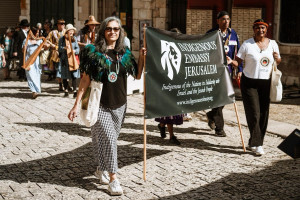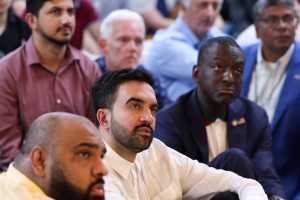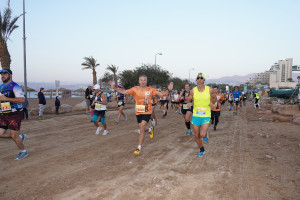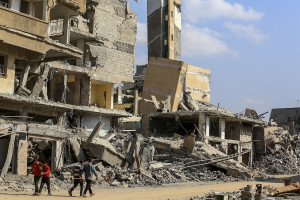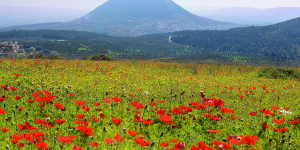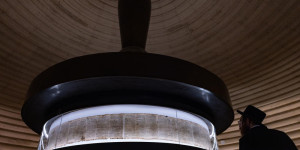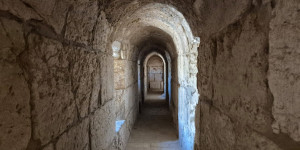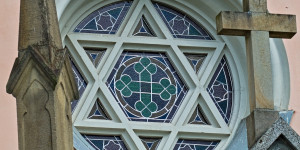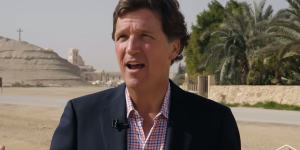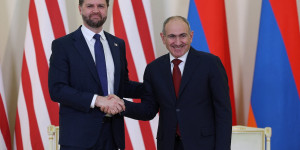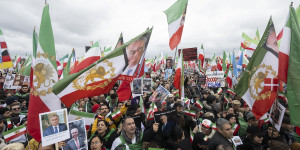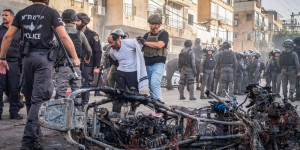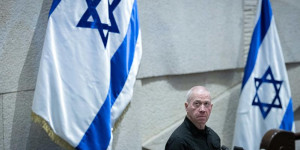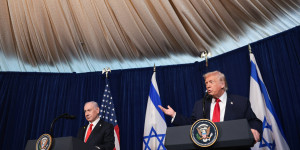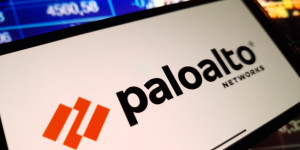Meriam’s song: How Israeli innovation is helping to save the Great Barrier Reef
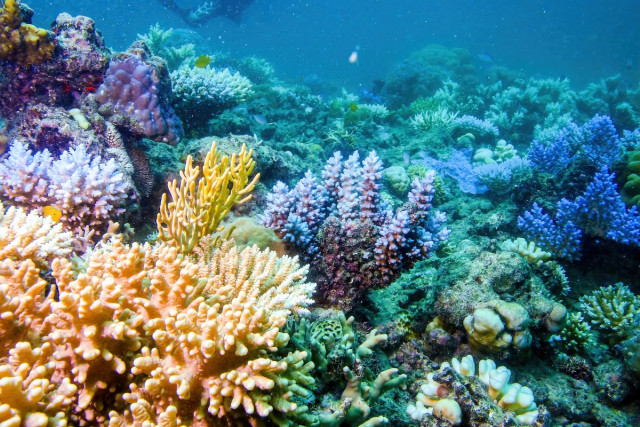
Shelly Bengiat, founder and chairwoman of Coralz Envirotech Education Group, walked into a church “by accident” and changed her whole approach to the marine conservation work she has dedicated her life to.
Originally from Nachsholim, a particularly beautiful stretch of Israel’s coastline, Bengiat is passionate about the sea: conservation, education, and innovation.
It is thanks to her work with the local indigenous community, the Meriam islanders, that a brand new system of using used oyster shells to create ocean-style “bricks” to rebuild the crumbling coral structure of the Great Barrier Reef in the Torres Strait, just south of Papua New Guinea.
“It started in Australia in 2016 and 17,” Bengiat told ALL ISRAEL NEWS. “There was a mass coral bleaching event, so a third of the Great Barrier Reef was impacted in a week of temperature rise… It was a mega disaster on a scale that has never been seen before on the planet.”
“We started to really investigate — how can we move from awareness to practical projects that we can do with the entire communities to stabilise the marine environments,” she explained. “We focused on island communities for the obvious reason, because if they cannot make it, nobody can: if they don't make it, they have to move.”
“Pay attention to the middle word,” Bengiat urged, speaking about the huge coral formation off the north eastern coast of Australia: “The Great Barrier Reef — it's a barrier — a barrier from what? It's a barrier from tidal inundation. When the barrier dies it crumbles and it disappears, and then the ocean hits the island, and erosion goes next.”
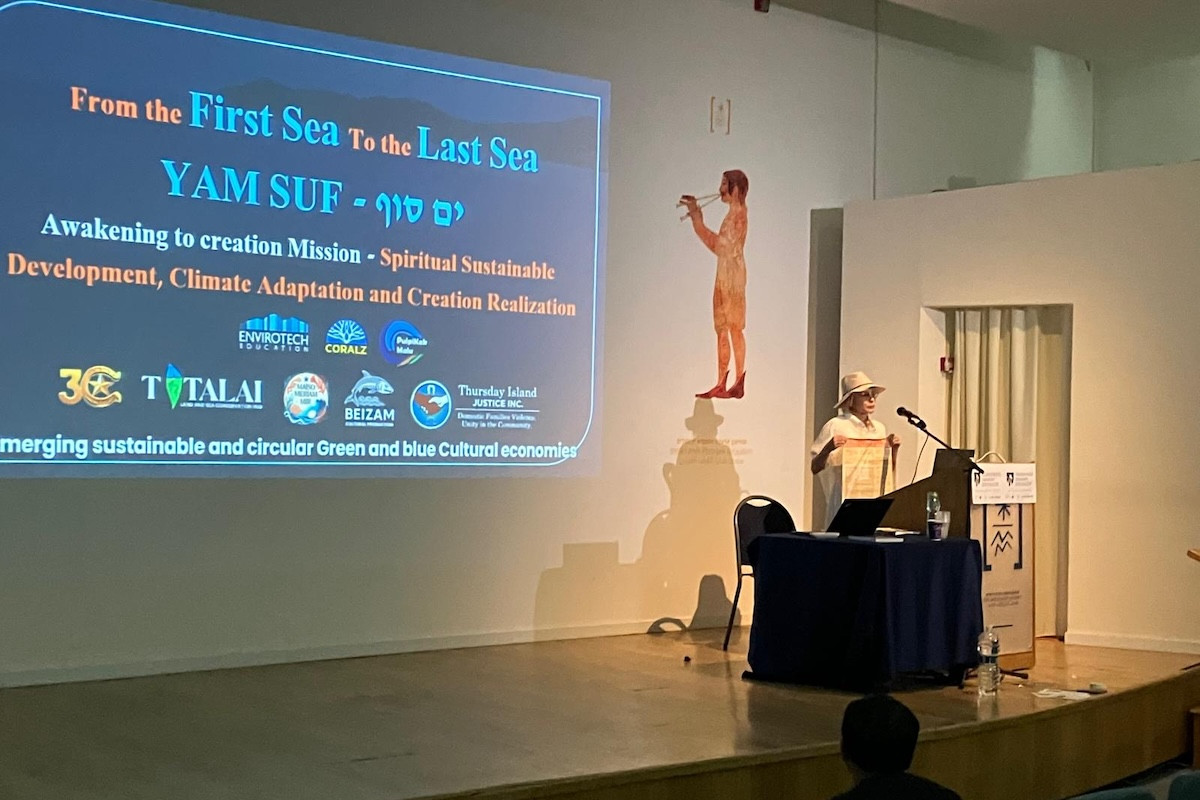
At every step Bengiat has been determined to work with the local Melanesian Meriam people, indigenous Australian islanders, who understood their own environments better than anyone else.
“The islanders understood that the reef is their livelihood, their protection from storms… so they have been really willing to understand,” Bengiat maintains. She saw that academic qualifications were not as important as practical understanding and experience, and sought to attribute accreditation to those with the necessary skills rather than tertiary education.
Bengiat pointed out that there are no high schools on the islands of the Torres Strait where her work is focused. “All the kids have to leave the islands and go to the mainland where they will never study about their islands, so there is no community capacity to actually address what is happening,” she explained.
“The journey took us nearly a year and a half, led by myself and my uncle Professor Nadav [Shashar] from Ben Gurion University,” Bengiat recounted. “He mobilised the Ben Gurion University experts to draft the first accreditations in the world for Marine Habitat Conservation and Restoration (MHCR), to be technical accreditations, vocational, not a university degree. For example, next week, we will be delivering accreditation with Ben Gurion University in coral Gardening and coral propagation,” she said. These qualifications are now recognised under the Australian Qualifications Framework (AQF).
“That's called a sustainable economy, when you’ve mobilized the entire community. I’m from a kibbutz, so for me it’s natural to think this way,” Bengiat explained.
She also had something of a spiritual epiphany as a result of her determination to work with the indigenous people. In the course of her work she was frustrated to see there were no indigenous people working in all the offices she was dealing with, and was delighted to eventually find someone. “In the last meeting, in a biosecurity office, I saw one person who was Indigenous, the first one. So I said to the team, that's the guy, let's actually get to know him."
It transpired he was a pastor. She asked to meet him to talk further, and he invited her to his church.
“I came to the church and I saw a beautiful community playing music, guitars, drums, singing beautiful songs, and actually calling out to the people of Israel. That’s what I heard,” she recalled. “I was actually completely overwhelmed, but what I saw there, I saw the entire community in the most far islands mentioning Israel, very often, like every half an hour, and also talking about us as the chosen people that have not delivered our mission yet,” she explained.
“It started to make me question, what are we chosen for? And did we do it? Or not? And that started my quest to learn Judaism,” she said. “We are different from many other nations. And the first thing is that our place is regarded as holy land… The land is holy, and that we have skills to make it work for us without devastating it — we can fish and have more fish, that we can farm in a sustainable way, and we actually have all the knowledge in Israel and we should share it,” she told ALL ISRAEL NEWS.
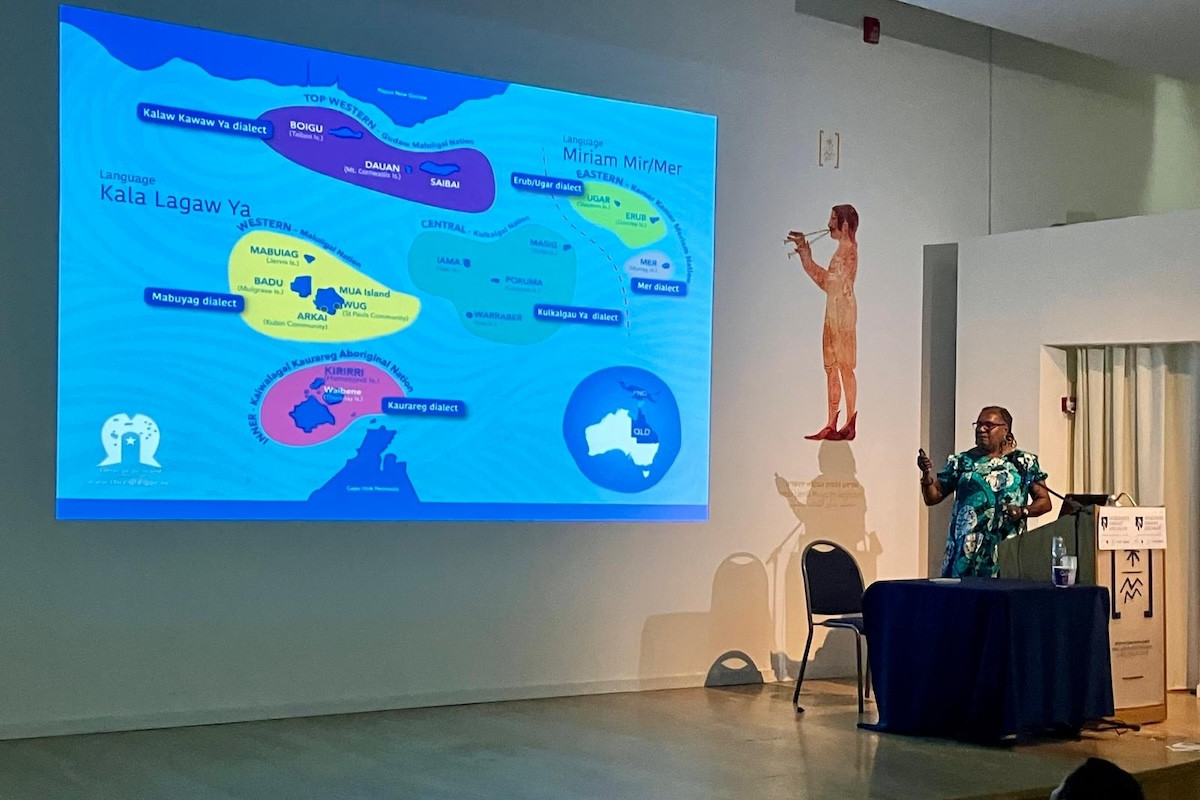
Relating to the antisemitism that is so prevalent today, Bengiat enthused, “It's not only about focusing on what is wrong. It's actually how do we focus on making it right? What can we do?”
“The more that Israel will support communities that are facing environmental challenges and lack of knowledge, the more that we fulfil the mission that we are chosen for, to make the land more holy, then we will be regarded in a very positive way in more and more communities,” she suggested.
The marine conservationist and educator presented her work together with Loretta Peres, a Torres Strait Islander, at the Academic Symposium of the Indigenous Embassy Jerusalem last Tuesday where she pointed out that the Hebrew word for coral is “almog” which sounds like “don’t disappear!” in Hebrew. The Bible now informs much of her work and philosophy in a way that brings heaven and earth together.
Her vision is to “co-create a future where Indigenous voices shape the blue economy and inspire global stewardship for generations to come.”
Bengiat’s organization, Envirotech Coralz Group, has become a globally leading Registered Training Organisation (RTO), graduating thousands of students from over 60 countries and winning awards such as Queensland Indigenous Student of the Year, Innovation in Training, and National Export and Sustainability Awards.
“I believe the governmental program is a spiritual one and spiritual issues require spiritual solutions,” she said. “So our aim is to actually, whatever we go, to connect to the local pastors, ministries, and make the church a hub, to speak about, what is holy. I call it ecotheology. It’s our natural environment. It's holy stuff.”
Want to help more people find our reporting from Israel? Leave a quick Google review of our website here.

Jo Elizabeth has a great interest in politics and cultural developments, studying Social Policy for her first degree and gaining a Masters in Jewish Philosophy from Haifa University, but she loves to write about the Bible and its primary subject, the God of Israel. As a writer, Jo spends her time between the UK and Jerusalem, Israel.
You might also like to read this:


